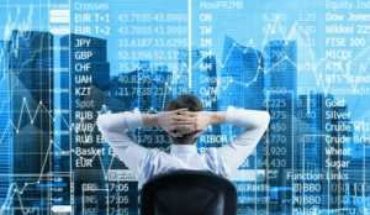Forex (or FX) refers to currency trading markets on foreign exchange markets.The world’s largest and fastest-growing financial market with a daily average turnover of nearly 2 trillion dollars – many times the total volume traded in the US bonds. The forex market consists of a worldwide wired network of currency buyers and sellers, with all-over-the-counter (OTC) trading, which means no central exchange or clearinghouse where orders are matched. You can find it in this global trading system, where there are no physical obstacles and activity moves seamlessly from one important financial center to another if you’re looking for 24-hour activities.
Forex is covered with mystery because the market once was the exclusive playground for banks, hedge funds, companies, and financial institutions. Money changed hands for commercial and speculative purposes. But Forex has expanded and is now easily accessible to all traders, with online currency trading platforms emerging rapidly. Many of these platforms are equipped with free charting software, feeds in real-time and easy-to-use orders. A new level of foreign exchange has come from the broad availability of sophisticated technology. Self-managed (same “retail”) traders can easily buy and sell currencies via the internet by clicking the mouse, handling invisible counterparty on the other side of the transaction. This group (also called speculative traders) traders for the sole purpose of profit-making.

The rapid currency exchange rate fluctuations attract forex speculators because currencies are susceptible, reacting very quickly to countries or regions’ changing economic conditions, changing interests, and political events worldwide. Country central banks sometimes try to intervene in the forex market if they feel that their country’s foreign currency is too strong or too weak for their own good. All these factors are responsible for high volatility.
Currency prices are exploited by traders who speculate on the current and future price movement direction and magnitude. While movements can be quite volatile in specific currency pairs, most significant currencies usually move less than 1% daily, much smaller than the active stocks, which can move between 5% and 10% every day—a rough guide for monetary pairs and their relative volatility.
There are many opportunities to take advantage of the forex market. For example, if you think the Euro will increase value against the US dollar, you will “long” the EUR/USD, which means buying the pair hoping that the exchange rate will increase. You will then make a profit if you appreciate EUR/USD, as you could sell at a price higher than you have purchased it before. But if you believe that the Euro will weaken against the US dollar (that is, EUR/USD will decrease), you can start a trade by selling EUR/US$ (known as ‘short’), so that if EUR/USD will decrease in value afterward, you will be able to make a profit by purchasing it back at a lower price. Forex has become increasingly an extremely attractive alternative asset group for commercial speculators in addition to the usual stock staple and future.
Everyone can trade Forex, but not everybody can make a profit. The rule of any game is that not everyone can win.




